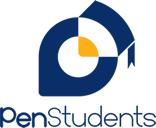table of contents:
- Canadian Education System
- Universities
- University College
- College and Technical Institution
- Carrier College
- Secondary Schools (Secondary)
- Private Educational Institutions
- Schools in the Public Sector
- Becoming a student in Canada
- International Student Program
- Applying to Canadian schools and universities
- Advantages of studying in Canada
- Applying to Canadian

Canadian Education System
Canadian Education System has a variety of Educational institutions, including community colleges/ technical institutes, career colleges, language schools, secondary schools, summer camps, universities and university colleges.
In the Canadian constitution, Education is a provincial duty, so there are many variances in Educational quality from province to province. However, Canadians consider Education so important that standards for Education remain consistently high across the country.
In general, at the age of four or five, Canadian children attend kindergarten on a voluntary basis for one or two years. At the age of six, all children enter Grade One. The academic year typically runs from September to June, though January intake dates are feasible in some cases. Secondary schools, depending on the province, go up to Grades 11 or 12. Students can then go on to university, college, or Cégep studies. Cégep stands for College of General and Vocational Education in French.
Although Education institutions in Canada are not officially ranked, you will discover high-quality universities all around the country. Choosing a college in Canada depends on various factors, including the type, size, and location of the institution. If you’re interested in a specific field of study, look into which colleges have more options in that field.
PenStudents
Universities
Every region of Canada has a big number of universities and university institutions located in both urban and rural settings. Our universities are well-known around the world for the high quality of their teaching and research. Canadian university degrees are deemed equivalent to those earned in American and Commonwealth institutions. Because universities in Canada are mostly sponsored by the government, they are of consistently high quality, regardless of location or field of study. They also all maintain a significant level of academic autonomy.
Individual universities’ full-time student enrolments range from over 35,000 to less than 1,000. Furthermore, most institutions have a significant number of part-time or continuing Education students. They provide a wide selection of courses as well as a complete range of services.
The academic year at universities normally spans from September to May. Some institutions operate on a semester or trimester schedule, with all courses offered throughout the year, including the summer. There is no national entrance exam in Canada; instead, each university sets its own admissions standards and evaluates each applicant independently.
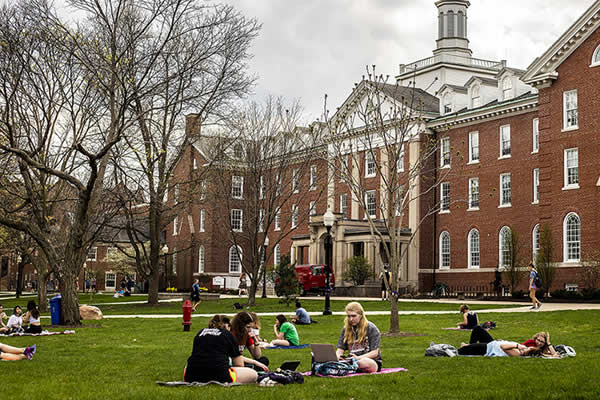

Because Canada has two official languages, English and French, an overseas student can choose to pursue a degree in either English or French. Some colleges and universities provide courses in both languages. To attend a Canadian institution, students do not need to be fluent in both languages.
Students who do not speak English as a first language must pass an English examination test to be considered for a degree programme at most English-speaking universities. Although the TOEFL is widely accepted, Canadian colleges frequently administer their own tests to students or accept other English proficiency tests such as the IELTS.
Your local Canadian Education Centre (CEC) can supply you with helpful information on English assessment examinations that are accepted by Canadian universities. Staff at the CEC can also help students determine if they are eligible for an English exam exemption. In addition, CECs have a wealth of information on Canadian institutions and can assist students in selecting the right university and applying for study in Canada.
If you want to study French at a university, you should know that there is no standardized French language test that international students must pass in order to be admitted to a degree programme. French universities, on the other hand, will assess a student’s French language abilities on an individual basis, and may choose to give their own written tests if language abilities are in dispute.
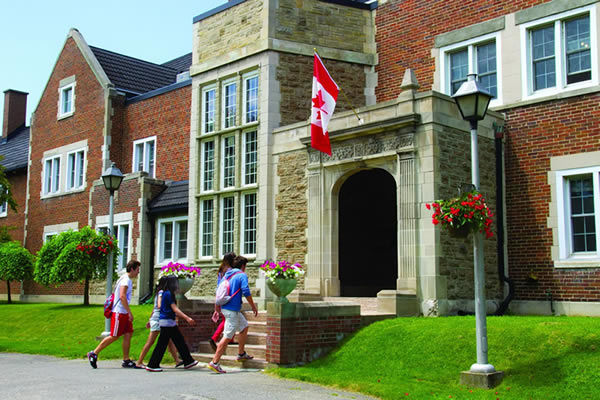
Transfers of Programs
In rare situations, you can finish one or two semesters of undergraduate Education in Canada and then apply your knowledge to a degree programme in your native country. You can also consider transferring to a Canadian university to finish your degree. In either instance, it’s critical to inquire about equivalencies related to your programme of interest with counsellors at both the Canadian institution you plan to attend and your home university or college.

University College
University Colleges bring together the best of Canadian university and college traditions with a broad range of applied and academic programs delivered on campus. A university college, as the name implies, provides university degrees as well as college diploma and certificate programs. At university colleges, students can expect to find a diverse selection of curriculum options, including English as a Second Language (ESL) programs.
University colleges, which are part of the Canadian university system, give students the option of pursuing academically oriented university degree programmes or more practical college degrees and certifications. University colleges, as part of the Canadian college system, are defined by robust student support services, small courses, and vibrant campus settings. They may also provide programmes that combine degrees and diplomas, as well as university transfer programmes.

Transfer Programs at Universities
Students who plan to pursue a university degree can receive credits by completing their first two years of study at a community college or university college. The majority of the credits acquired in this type of programme can be transferred to colleges as first and second year credits in a degree programme. Community colleges and university institutions that provide transfer programmes normally have established relationships with surrounding universities, but it is crucial to verify with the college to see which universities would take the credits. You must verify that the courses you take are appropriate for the university degree you intend to pursue.
College and Technical Institution
Colleges and Technical Institutions (CTIs) are popular Educational options in Canada; they offer one- to three-year professional degrees (sometimes with a work period) that are highly marketable. Some community colleges provide university transfer programmes, which allow students to enrol in courses that are equivalent to those taught during the first two years of a four-year university programme. Students must still apply for admission to the institution in order to finish the final two years of the four-year degree.
The Association of Canadian Community Colleges (ACCC) has 175 members who are officially designated as Community College, College, Technical Institute, University College, and Cégep. All of these institutions are primarily responsible for meeting the training demands of business, industry, and government. They also address the Educational needs of vocationally focused secondary school graduates, university graduates seeking employment, and the adult population’s lifelong learning requirements. As community needs change and expand, these institutions have historically offered diplomas, but at least 18 currently offer degrees and applied degrees.

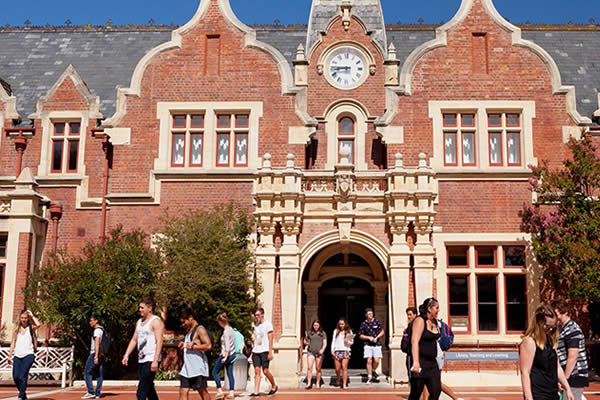
Specific, vocationally-oriented curricula, as well as general academic concentrations, are often offered in two- to three-year (or shorter) college programmes. In fact, after completing their degrees, a large proportion of university graduates return to college to gain job-related skills. Smaller classrooms, off-campus course offerings, a higher ratio of laboratory space to classroom space, an interactive teaching style, and inclusive entry standards distinguish colleges from universities. Apprenticeship and continuing Education programmes, for example, often have multiple entrance levels and cover a wide range of topics, from technology to the creative arts. Many disciplines, including as computer technology, mining, the environment, and hospitality and tourism, have famous Centres of Excellence at colleges. They create curriculum and hands-on training for future members of a skilled workforce.
The mix of employer-centered programmes within comprehensive learning institutions that respond to national economic policy distinguishes Canadian colleges. Colleges are ever-changing institutions that strive to address the economic and social demands of the communities in which they operate. As a result, some universities have received ISO accreditation, and all strive for quality and excellence in addressing society’s changing Educational needs.
Transfer Programs at Universities
Students who plan to pursue a university degree can receive credits by completing their first two years of study at a college or university college. The majority of the credits acquired in this type of programme can be transferred to colleges as first and second year credits in a degree programme. Transfer colleges and university colleges normally have established relationships with surrounding universities, but it is vital to verify with the college to see which universities would accept the transfer credits. You must verify that the courses you take are appropriate for the university degree you intend to pursue.


Carrier College
In Canada, Career Colleges are privately operated colleges that give students with practical skills for the labour market after a brief period of Education. Students interested in short-term training programmes in areas such as multimedia, film studies, computer/internet studies, graphic design, and hospitality, to mention a few, should apply to a career college.
A technical/career college is a privately owned and operated institution with the primary goal of training students for employment after a brief period of study. Practical skills are emphasised throughout a wide range of curricula in technical/career colleges. They might specialise in areas like business, computers, or secretarial work. Despite being privately owned, these schools are approved and governed by the province, ensuring that programme standards are met.
Secondary Schools (Secondary)
In Canada, there are several private, independent, and publicly sponsored secondary schools. Students can enrol in either an intensive English programme or an academic and English programme. There are a variety of academic programmes available for persons with great English language abilities that can lead to a Canadian high school diploma.
Schools in the Public Sector
International students are gradually being accepted into several Canadian public schools. At the local level, elected school boards oversee publicly funded schools. Almost all public schools are coed and exclusively provide daytime classes. While some school districts provide secular or non-religious Education, others have religious links. This, however, differs from one province to the next. The policies for accepting international students, as well as the fees charged, differ by district.

Private Educational Institutions
Private schools can be found in every region and offer an appealing alternative for parents looking for an international Education for their children. Many commercial and political figures in Canada are graduates of prestigious private institutions. Private schools must be registered with the Ministry of Education in their province or territory, and they must follow the curriculum and other requirements established by their individual ministries. Boys-only, girls-only, or co-Educational schools are available to families. Some private schools are boarding schools, while others are day schools, and yet others provide both. Many private schools follow a certain religious faith, emphasise specific moral precepts, and adhere to strict academic standards.

Becoming a student in Canada
Canada’s student population is becoming increasingly diverse and multicultural. Many of them are able to remain in Canada after completing their Education. The decision to grant a student visa to enter Canada rests solely with the visa officer. The Canadian government places a high value on attracting a wide range of international students. By working with our International Student consultants, your chances of success will be increased.
International Student Program
The International Student Program is broken down into four distinct phases so that you can keep tabs on the status of your application at any given time:
1/ Choosing a Program Is the First Step
It is your Educational Counsellor’s job to help you find the best academic program to fit your interests and career goals. The length, cost, location, and course schedule are all taken into consideration when recommending programs.
2/ Applying to a College or University is Step Two
Once you and your Educational Counsellor have decided on the best level of study and Educational program, we will help you prepare and submit your application for the school. Before you can apply for a study permit, you must have a letter of acceptance from a Canadian-designated learning institution (DLI).
3/ Third, apply for a student visa
To apply for a study permit in Canada, you’ll need to have your acceptance letter. Immigration applications can be prepared and submitted by your Educational Counsellor. If you and your spouse are married, she/he may be eligible for an open work permit!
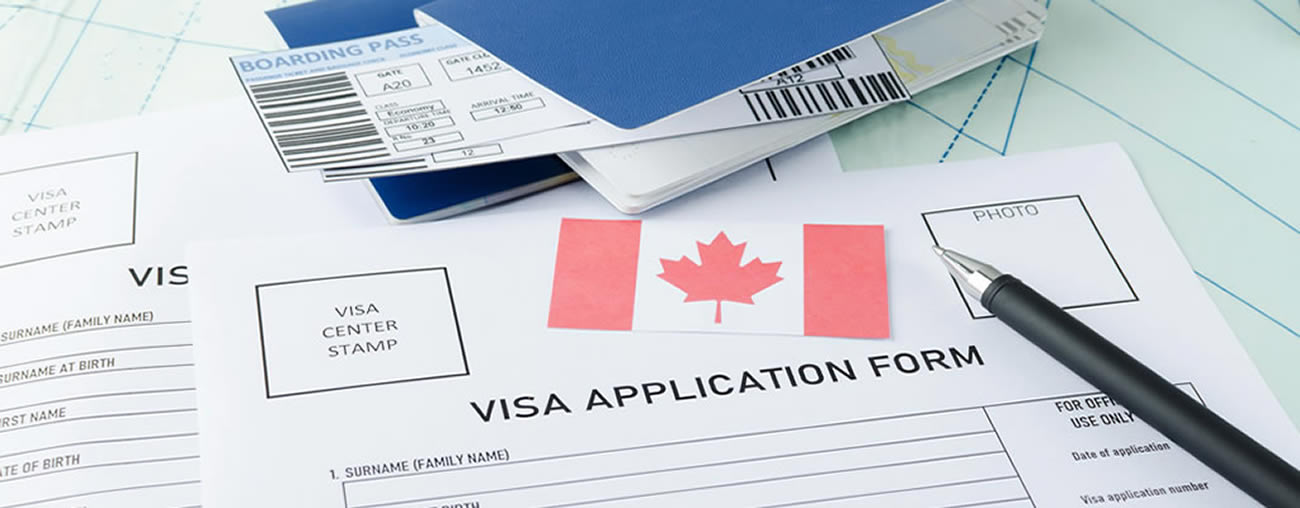
Rather than a study visa, the document that allows foreign students to come to Canada to study is known as a study permit. Permits allow you to engage in certain activities, like working or studying, while visas only allow you to enter Canada.
4/ Finally, find out about your immigration options
You’ll be a strong candidate for permanent residence in Canada if you have a Canadian Educational credential. Immigration policies in Canada are subject to frequent revision, making it impossible to determine which path is best for you. Anyone interested in studying abroad in Canada should begin by taking a free online assessment.
If you want to know what to do after immigrating to Canada, read the article “tips after immigrating canada“
There are many advantages to studying in Canada.
- If you’re an international Student, there are numerous advantages to studying in Canada! International Students know they can count on a wide range of services in Canada, from on-campus initiatives to help them adjust to university life to immigration policies aimed at making it easier for them to become permanent residents.
- Many schools and governments in Canada are implementing measures to improve Student experiences and make it easier for international Students to live and work in Canada after they complete their studies.
- Assistive English as Second Language programs is among the many services provided by universities and colleges to international Students as a means of better integrating them into campus life.
- International Students with excellent academic records can often qualify for generous financial aid packages from many universities.
- The majority of Canadian international Students are granted permission to work part-time during their studies in Canada, and this is done without their knowledge.
- A post-graduation work permit is available in Canada, allowing most international Students to stay and work in the country after they graduate.
- For international Students who have graduated from college or university, Canadian immigration organizations, both federal and provincial, offer immigration programs that help them transition to permanent residency in the country.
- A growing number of international Students are choosing to study in Canada, and this trend is expected to continue in the future. Studying in Canada would be an excellent option for anyone from outside of the country looking to broaden their Educational horizons or start a new life.
How Should One Get Ready to Apply to an Educational Institution in Canada?
The first thing you need to make sure you’ve done is adequate preparation.
After you have narrowed down your list of potential schools, the next step is to determine whether or not each one is a Designated Learning Institution (DLI). This indicates that Canada regards them as credible Educational institutions that are open to Students from other countries.
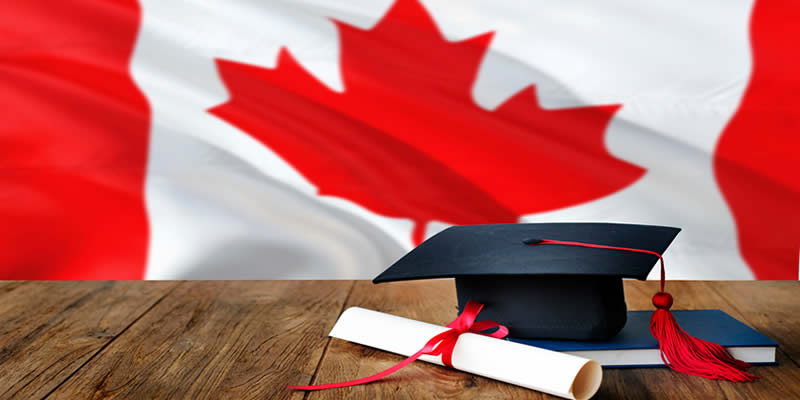
Because the cost of your tuition has such a significant impact on the total cost of your Education in Canada, you need to take this into account when choosing an Educational establishment. The cost of tuition varies depending on a number of factors; however, additional information regarding the costs of each academic program is provided on the institution’s website. Researching the various scholarships available to international Students in Canada is another option for funding your studies in that country.
Research your subject and language. You can choose a program/course taught in English, French, or both in bilingual Canada.
Your grades matter. You’ll be competitive with good grades. Many top Canadian universities require above-average grades. Your chances of getting into a top university or college increase with your grades.For post-graduate programs, if you’re over 25 and graduated more than two years ago, you may be asked about your past employment or activities.
Applying to Canadian schools and universities
Check requirements
International Student applications to Canadian universities and colleges can be lengthy. Start planning a year before your Canada study start date.
Check course requirements to see what documents you need. Remember that university requirements vary by province. All universities require:
Choose Courses and Schools
Choose a major. Nearly every Canadian degree program is taught in English. You can apply for degrees across disciplines as an undergraduate or graduate Student. Apply to a DLI school. If you don’t, your Student visa will be denied. Some cases don’t require a DLI number.
Also, be sure you want to study at the universities/colleges you choose because application fees range from $50 CAD to $250 CAD per application.
Collect admissions documents
Each school has different admission requirements, but these are the most common:
- Diploma/degree.
- An intent letter, SOP, or motivation letter.
- An application. Usually online.
- CV/resume (CV).
- Proof you can support yourself in Canada.
- Two or three academic reference letters to prove you’re ready for Master’s/Ph.D.
- If available, a portfolio.
- An official transcript from your secondary/high school if you’re just starting your bachelor’s or your previous university if you’re applying for a post-graduate programme (PGD, master’s or higher).
- A professional translator must certify any translated document. Original documents must be included.
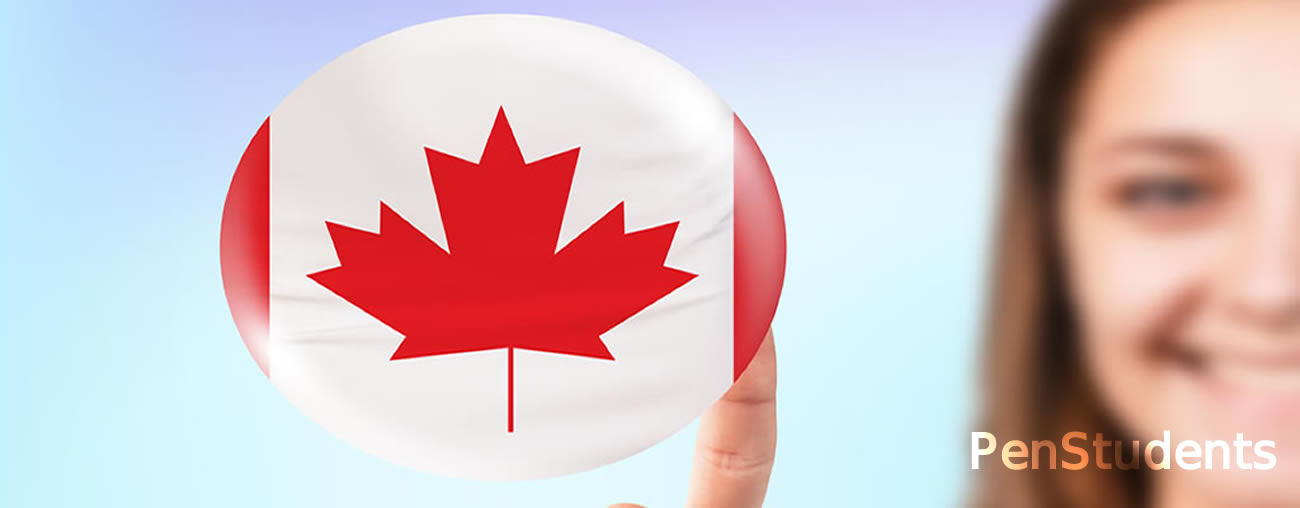
Consider the Deadlines for Submission of Applications
During each of the university’s three enrolment periods each year, prospective international Students can begin their studies. The ‘Fall’ intake is the most common in Canada (September). The ‘Winter’ (January) intake is an alternative, but it is contingent on the program and institution to which Students are applying. Only a handful of colleges and universities accept Students for the ‘Summer,’ or May, intake as well. Most Canadian universities only consider ‘Fall’ (September) applicants for entrance awards and scholarships, so if you’re hoping to get one, your best bet is to apply for the September intake.
The application deadline for winter (January) enrolment is typically September 1st of the previous year. Beginning on the 15th of January for Master’s applicants, and earlier for Bachelor’s applicants, fall (September) enrolment typically begins.
Different schools have different application deadlines. The application deadlines for various graduate programs at the same university may vary. To recap, you’ll want to keep an eye on the study program’s website for any new information.
Some schools, on the other hand, have deadlines for reviewing applications and making admissions decisions. An official letter of acceptance from a university or college is typically sent to the applicant within one to two months of the application deadline.
Ensure that your application has been submitted
Online application systems are available for most Canadian universities and colleges.
Unless the schools use a provincial application service like OntarioColleges.ca or OUAC, online or paper application forms are typically available at the university or college websites. Application fees are typically required before an applicant can submit a digital application.
To send a paper application to a Canadian university or college, complete the application form, attach all supporting documents, and mail/courier the entire package. Your application will not be considered until your application fee has been received by the school’s admissions office.
What Should You Do If Your GPA Is Lower Than You Expected?
The first thing applicants should understand is that GPA is not the only criterion used to determine admission. As a result, applicants with low CGPAs but strong academic records are still in the running.
Applicants with low CGPAs should therefore ensure that they have a good track record of the following requirements:
A clear SOP
An SOP, which stands for “Statement of Purpose,” is an important part of the application packet because it explains the applicant Student’s motivations for applying to a particular university. Unless otherwise specified in the guidelines provided by the university, it will most likely be an essay that is 1000 words long and will require special attention at every stage of the writing process. The standard operating procedure (SOP) in its entirety is expected to fit within two pages of a word document at the vast majority of universities.
A strong statement of purpose (SOP) can make or break your chances of getting into the University of your Dreams. When writing a statement of purpose (SOP), brevity is of the utmost importance when describing your professional aspirations. For more detail about how to write a successful SOP read our post, “A Step-by-Step Guide to Writing Your Statement of Purpose’’.

The GRE Tests
According to the specific programmes of study, Students may or may not be required to take the Graduate Record Examinations (GRE). Students with low GPAs can improve their chances of admission by doing well on the GRE, which is optional for some schools. By doing so, Students can demonstrate to universities that they are committed to finishing their graduate degrees, regardless of their undergraduate performance.
Recommendation Letters
Prospective graduate Students should make an effort to establish personal relationships with at least a few of their undergraduate professors or school and college instructors in order to gather references for graduate school applications. Teachers’ relationships with Students allow them to write recommendations that go beyond simple grades.
Resume
Student applicants with low grades can benefit from having a well-written resume and relevant work experience. Internships, jobs, extracurricular activities, and research projects all provide excellent opportunities for Students to demonstrate their aptitudes and passions in their chosen fields.

Goals of Students
Graduate school applicants should be crystal clear about their career objectives and what they hope to gain from a graduate programme before submitting their applications. Schools are looking for Students who will benefit from pursuing a degree, so those interested in applying should make sure that their Educational objectives align with the opportunities provided by the programmes to which they are applying.
Interview for College Admissions
Another great way for Students to boost their grad school applications is to meet faculty members in a programme. This gives them the information they need to select the best schools. As a way for Students to explain why they want to attend specific programmes and what their goals are, they can also explain why their GPAs are so low during an interview.
